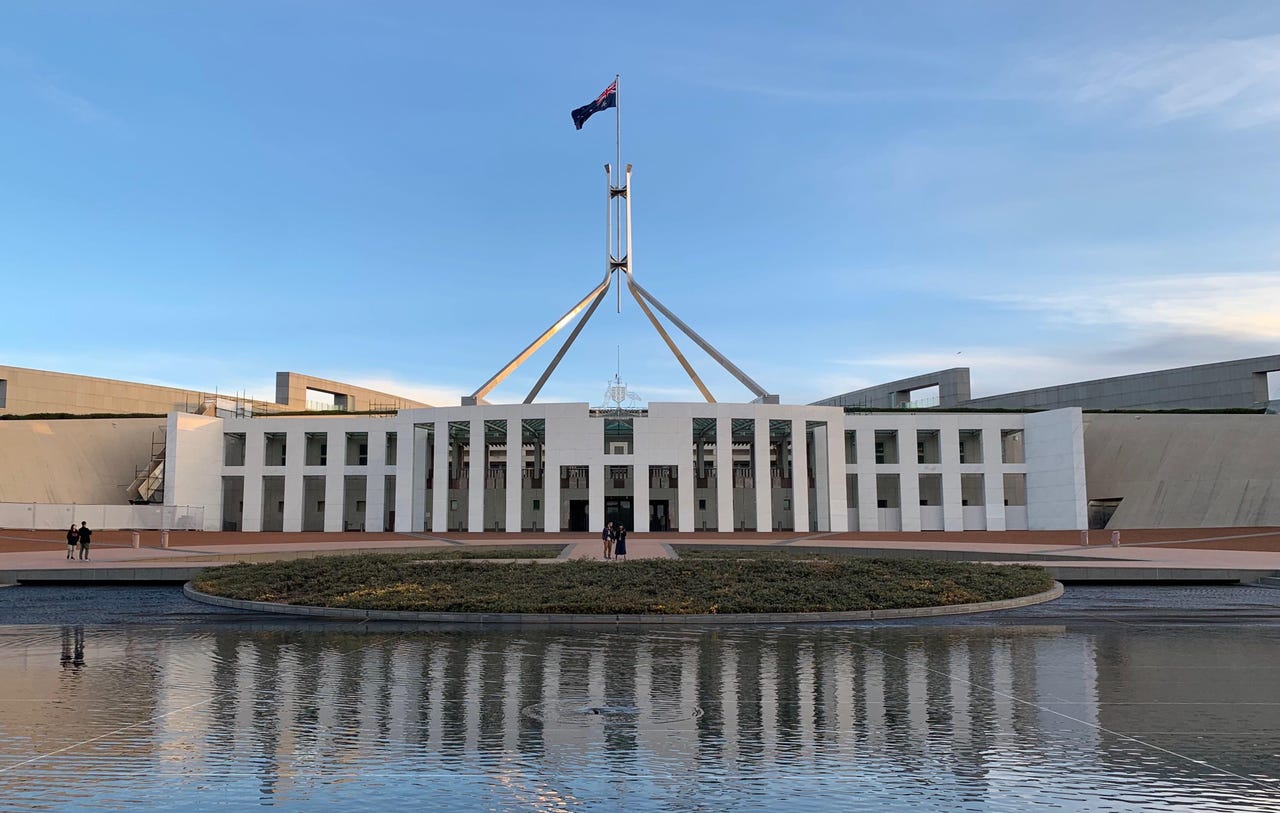The tech within Canberra's economic and fiscal update

With the federal government postponing its Budget until October, it published an economic and fiscal update on Thursday that revealed the economic impact COVID-19 has had.
The document [PDF], aside from containing a trove of already announced COVID-19 schemes, such as financial support for businesses, individuals, and families, as well as telehealth, provided an update on a handful of tech-related initiatives.
The Australian Competition and Consumer Commission (ACCC) will be given a total of AU$19.2 million to continue its work on the Consumer Data Right (CDR).
The government will also provide AU$6.2 million in funding to the Department of the Treasury to support an information and awareness campaign to introduce CDR to consumers and businesses and drive uptake, it said.
The CDR officially launched on July 1, with the first tranche -- an open banking-like regime -- requiring financial services providers to share a customers' data when requested by the customer.
It has been touted as allowing individuals to "own" their data by granting them open access to their banking, energy, phone, and internet transactions, as well as the right to control who can have it and who can use it.
In the first instance, the mandate will apply to banking, with the energy sector to come online soon, followed by telecommunications.
Read more: Australia's Consumer Data Right: Here's everything you need to know
The Regional Broadband Scheme (RBS), also known as the broadband tax, was recommended to be passed by the Senate Environment and Communications Legislation Committee back in September 2017 and again in February, after the Bills previously lapsed.
It cleared Parliament in May, with the government revising its start date to 1 January 2021.
"This will provide sufficient time for implementation of the RBS and provide certainty for carriers at a time when they are supporting essential connectivity to businesses and consumers during COVID-19," the government said on Thursday.
"This measure is estimated to decrease the underlying cash balance by AU$0.5 million over the forward estimates period.
The charge is indexed yearly and collected one year in arrears. It is expected to raise in excess of AU$700 million annually.
Read more: NBN broadband tax clears Parliament
With the federal government in May admitting the Centrelink Online Compliance Intervention (OCI) initiative -- robo-debt -- incorrectly issued 470,000 debts to those in receipt of welfare, the government is refunding around AU$721 million to Australians.
The debts to be refunded are those which used automation techniques to calculate money owed to the government post-2015.
In its economic and fiscal update, the government said it was making "changes to the Income Compliance Program" but the funding allocated was marked as "not for publication".
"The government will provide AU$721 million over four years from 2020-21 to refund all repayments made on debts raised based on wholly or partially averaged Australian Taxation Office (ATO) data under the Income Compliance Program," it wrote.
"Refunding of eligible debts commenced in July and will continue through the 2020-21 financial year. The financial implications of this measure are not for publication due to ongoing legal proceedings."
Read more: Robo-debt class action on track for September 21
The Australian Bureau of Statistics (ABS) will keep its AU$39.6 million over three years from 2019-20 to "facilitate and enhance the delivery of the 2021 Census".
The 2021 Census will be built using the Amazon Web Services cloud through a contract awarded to PwC Australia. The change of approach is expected to counter any repeats of what occurred in 2016, when the ABS experienced a series of small denial-of-service (DDoS) attacks, suffered a hardware router failure, and baulked at a false positive report of data being exfiltrated which resulted in the Census website being shut down and citizens unable to complete their online submissions.
The Census was run on on-premises infrastructure procured from tech giant IBM.
"The additional funding will address areas of risk which were identified in the course of the 2016 Census and encourage greater participation to ensure the successful delivery of the 2021 Census," the government wrote in its economic and fiscal update.
Read more: Censusfail: An omnishambles of fabulous proportions
The economic and fiscal update also touches on the federal government's AU$1.35 billion cybersecurity package, announced in June, just days after Prime Minister Scott Morrison told the nation it was under cyber attack from an unnamed state actor.
"The government will provide AU$1.4 billion over 10 years from 2020-21 to the Australian Signals Directorate, Australian Cyber Security Centre, and the Department of Defence to identify cyber threats, disrupt foreign cyber criminals, and increase partnerships with industry and other governments," the document states, under the header of Cyber Enhanced Situational Awareness and Response package.
"This measure will be offset by redirecting funding within the Defence Portfolio."
In addition, it said it will provide AU$677 million over nine years from 2019-20, including AU$241 million over four years from 2024-25, for COVID-19 support measures in the communications, cyber safety, and arts sectors.
The package includes AU$10 million in 2020-21 for the Office of the eSafety Commissioner to respond to increased online activity.
Read more: Australian government pledges 10-year, AU$1.35 billion cyber kitty
Australia's underlying cash balance is forecast to decrease from balance in 2018-19 to a AU$86 billion deficit in 2019-20 and a AU$185 billion deficit for the next financial year.
"The Economic and Fiscal Update released today shows the impact of the COVID-19 pandemic on our nation's finances as well as the scale of the support that has been provided to prepare our health system and cushion the blow for millions of households and businesses," a statement from Treasurer Josh Frydenberg said.
"Through the government's strong fiscal management, Australia entered the COVID-19 crisis in a position of economic and fiscal strength. We returned the budget to balance for the first time in 11 years which underpinned the capacity to respond to this unprecedented shock."
